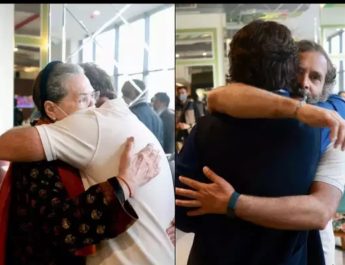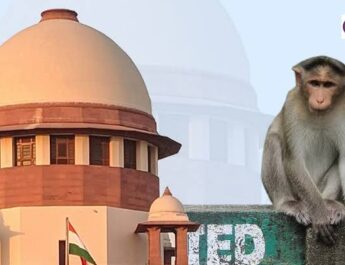From Our Bureau
NEW DELHI: Precious little was achieved Thursday at the meeting of 16 opposition parties in Patna. Apart from reiterating the need for opposition unity, nothing concrete came out of the four-hour-long meeting that kicked off at the official residence of Bihar Chief Minister Nitish Kumar.
The only real ‘agreement’ at the meeting was to meet again in Shimla on 10 or 12 July under the chairmanship of Congress president Mallikarjun Kharge.
The underlying message from the opposition parties? If they don’t forge a united front, the opposition will not be able to stop the BJP from returning to power next year.
Kharge and Rahul Gandhi contended that their party’s recent win in Karnataka showed that the BJP is not invincible.
Not united? Notably, a strong divergence of opinion on chalking out a common agenda surfaced during the meeting.
While some parties are in favour of it, others say that a common agenda, or a common minimum programme, can always be chalked out after the 2024 election if the need arises.
Some parties are worried they will be viewed by voters as part of an ‘opportunistic alliance’, in the absence of a common minimum programme.
Others say fighting elections unitedly on the basis of seat-sharing deals should be the foremost task before the election.
The fragility of opposition unity was driven home when Arvind Kejriwal took on the Congress for not extending their support to AAP over the Centre’s ordinance on Delhi civil services.
Kejriwal declared that he would not attend the Shimla meet and absented himself from the joint presser addressed by the opposition leaders after their meeting.
Congress will overassert? Leaders of some regional parties obliquely hinted at the meeting that the Congress would have to shoulder a major part of the responsibility for forging opposition unity.
For that, the party would have to adopt a flexible stand on accommodating regional parties, they opined.
This was a broad hint for the Congress leadership that they should respect the turf of regional parties and not lay claim to seats in states where regional parties are strong.
But the Congress will not concede much ground to regional parties.
They have already said they plan to field candidates for about 450 Lok Sabha seats, thus leaving the remaining 93 to other parties.
And this is where the opposition’s bid to forge unity will come unstuck.
There were several other sore points among the parties.
What next? The Congress has offered to host the next meeting in Shimla next month.
All parties agreed to it, as well as to the Congress’ suggestion that it should be a two-day affair where substantive issues can be discussed.
Nitish Kumar told Kharge that a firm agenda should be drawn up for the Shimla meeting.
He said that the next meeting should discuss the seat sharing formula conceived by the JD(U)-RJD combine.
Congress leaders admitted in private that the seat-sharing formula needs elaborate discussions and will need major tweaking to address the concerns of all the parties.
Bottom line: Predictably, there are too many differences between the opposition parties, which makes it tough to achieve any sense of unity.





